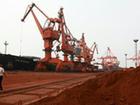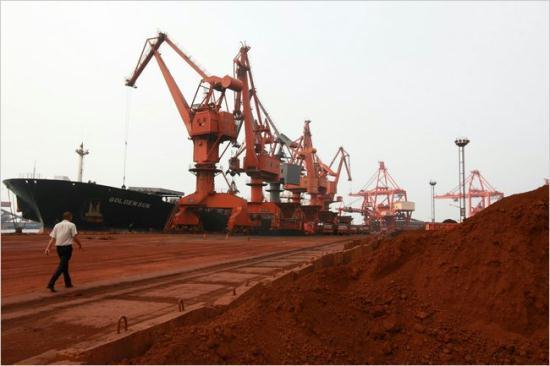| Videos | ? Latest |
|
? Feature | ? Sports | ? Your Videos |
Rare earth mining brings high environmental cost

 0 Comment(s)
0 Comment(s) Print
Print E-mail CNTV, April 26, 2012
E-mail CNTV, April 26, 2012
China is negotiating with the US, Japan and the EU over its rare earths exports. The country is facing possible WTO penalties for setting quotas. China has stressed that the environmental concerns are one key reason behind the restrictions.
CCTV reporter goes to a mine in western China's Sichuan Province to see the high price paid for producing these elements, and the efforts to change that situation.
The US, Japan and EU countries are suing China for breaking its commitments to the WTO rules. China says its restrictions on rare earths exports are in line with the WTO principles.
Enjoying the fruits of a better environment - Former miner Jin Hongyuan and his wife moved here five years ago. Before that, they used to think they were sitting on a gold mine. They didn't realize that rare earth mining has a high environmental cost.
Jin Hongyuan, village head of Jianshe village, Sichuan Province, said, "Rare earths mining was the quickest way to earn money. Villagers used to only think of immediate interests. But later we realized that our lives are closely connected with the environment. We then gave up mining."
 |
|
China has stressed that the environmental concerns are one key reason behind the restrictions.? |
Some 20 kilometers away is Jin's former village. Everything has been overwhelmed by mining. It polluted the river, and killed the farmlands.
These mine tailings are what's left, once the rare earths have been extracted from the ore. And here in the mine of Maoniuping, procuring one ton of rare earth elements creates some 400 tons of tailings. The land here used to be green. But all that changed when the mining began two decades ago. And cleaning up the environment could take much longer.
Maoniuping is one of the biggest rare earth mines in China. The company chairman, Zhang Shengyi, told us there used to be over 100 work crews here. Three years ago, his company won the bid for the final mining rights.
Zhang Shengyi said, "When we first came here, we found the environment had been badly damaged by uncontrolled mining. There was erosion and geological disasters. So, we have to take several years to improve the environment, before mining at full capacity."
Changing the landscape will cost over 100 million US dollars. "We are isolating the mine tailings and building dams to contain them, and planning to plant trees in the near future."
For now, the company can only maintain a very small amount of production. Rare earths, which include 17 metal elements, are vital in making clean energy technology.
Zhang Shengyi says the production process includes mine selection, chemical extraction, and waste treatment. The government has set up pollution control standards, and determined to shut down all companies that don't meet them.
Zhang Shengyi s said, "Waste water contains fluorine and heavy metals. We must purify it before discharging it, and reach government environmental standards."
Perhaps the best way for China to reduce the environmental damage caused by the industry, is to cut back production and export. But the rest of the world needs China's rare earths to help clean up their environment. It appears impossible for the country to meet the global demands, while seeing to its own environmental health.
As village head, Jin Hongyuan has led the villagers in making Jianshe environmentally friendly ever since they moved here. And they've been so successful, they now welcome tourists. They know they can never go back to their original home. They say that whatever profit mining brings, it's not enough to heal the land.





